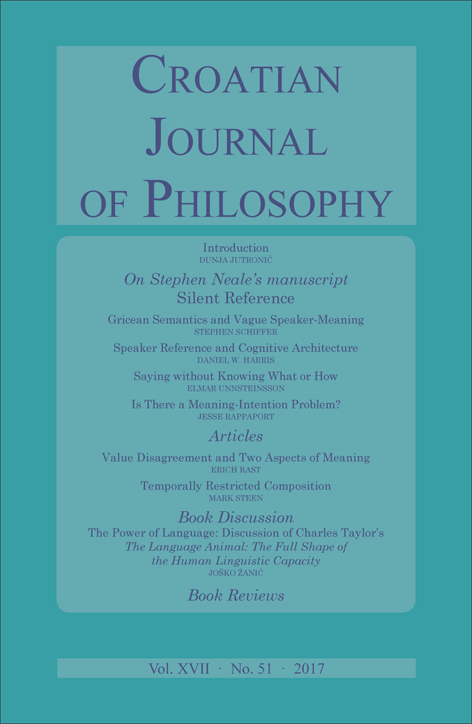Is There a Meaning-Intention Problem?
Is There a Meaning-Intention Problem?
Author(s): Jesse RappaportSubject(s): Semantics, Philosophy of Language
Published by: KruZak
Keywords: Grice; speaker meaning; reference; hidden indexical; meaning-intention problem;
Summary/Abstract: Stephen Schiffer introduced the “meaning-intention problem” as an argument against certain semantic analyses that invoke hidden indexical expressions. According to the argument, such analyses are incompatible with a Gricean view of speaker’s meaning, for they require speakers to refer to things about which they are ignorant, such as modes of presentation. Stephen Neale argues that a complementary problem arises due to the fact that speakers may also be ignorant of the very existence of such aphonic expressions. In this paper, I attempt to articulate the assumptions that support the meaning-intention problem. I argue that these assumptions are incompatible with some basic linguistic data. For instance, a speaker could have used a sentence like “The book weighs five pounds” to mean that the book weighs five pounds on Earth, even before anyone knew that weight was a relativized property. The existence of such “extrinsic parameters” undermines the force of the meaning-intention problem. However, since the meaning-intention problem arises naturally from a Gricean view of speaker’s meaning and speaker’s reference, the failure of the argument raises problems for the Gricean. I argue that the analysis of referring-with offered by Schiffer, and defended by Neale, is defective.
Journal: Croatian Journal of Philosophy
- Issue Year: XVII/2017
- Issue No: 51
- Page Range: 383-397
- Page Count: 15
- Language: English
- Content File-PDF

